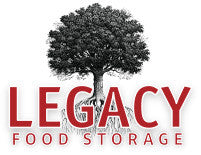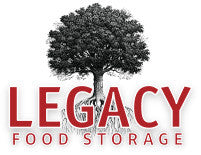Five Preparedness Lessons Learned from Recent Natural Disasters
With plenty of communities in the East still reeling from Hurricane Sandy and other natural disasters happening all over the globe, there has been a lot of talk lately about what we can do as individuals and as societies to be better prepared for emergencies. Of course we know we need to have food and water and basic emergency supplies on hand, but people who have lived through emergencies say there is more to being prepared than this.
A month or so ago, I began to compile a list of advice gathered from news articles, blogs, and discussion boards from people who had lived through Hurricane Sandy and other disasters. This list is made up of lessons these people learned from their experiences and advice they would give to others knowing what they know after having lived through an emergency. Interestingly, most of the advice falls under a handful of basic themes. What you find here are these themes and some particularly good ideas related to each. Read through them and be enlightened, as I have been while gathering them. Also, if you think of any you’d like to add, share them with us in the comments box below.
1. You can never have too much of some emergency items. The most commonly mentioned ones are food, water, matches, batteries, and baby wipes.
FOOD: Think about times when you are stressed out or bored. If you are like me, you probably eat more during these times, especially if you are stuck at home near all the food. In an emergency situation, if you are holed up in your home waiting for news (and your kids are home from school too), chances are you are probably going to go through a lot more food than you normally would. You are probably never going to think, “Oh man, I stored too much food.”
WATER: The same is true for water. In an emergency situation, if your water is turned off, you’ll need water for almost everything: drinking, washing dishes, cooking, flushing the toilet, washing hands, bathing/showering, etc. In addition to having water stored, it can be helpful to also store a water purifier or be familiar with methods of water purification. It can also be a good idea to store containers for catching water should that become necessary.
MATCHES AND BATTERIES: Many people who have lived through disaster situations express surprise at how quickly matches and batteries ran out. Keep more of these stored than you think you’ll ever need. You may also want to consider having rechargeable batteries with solar chargers.
BABY WIPES: Anyone who’s been a parent can guess why having lots of baby wipes around could be invaluable. Baby wipes are great for cleaning up messes without using valuable water, for wiping hands, and for refreshing faces.
2. Don’t underestimate the value of storing morale-boosters. Human beings aren’t machines, and while we are resilient and generally stronger than we think we are, we can’t expect ourselves to flourish in any extended survival situations without having some comfort items. Comfort items can go a long way in helping us keep a positive outlook and be mentally ready for anything a survival situation might throw at us.
Comfort items meant different things to different people. Many people who have survived disaster situations say that having treats like chocolate or Twinkies or coffee around was sanity-saving and helped them to keep calm. Others stress the importance of having some entertainment methods like games, craft items, art supplies, books, and musical instruments.
So while you’re stocking up on matches and food storage, don’t neglect to stock up on some treats too.
3. Generators make life much easier during an emergency. This is an obvious fact, but many people who experienced life after Hurricane Sandy say that they didn’t realize how much they relied on their power until it was gone.
Here are some helpful tips about generators:
- Turn the generator off at bedtime to conserve.
- Read the owner’s manual of your generator and know what its requirements are for fuel and filter changes. (Generators require lots of fuel.)
- Know that some items require a huge amount of power to operate (fridges, toasters, freezers, hot plates, and microwaves, to name a few).
As a side note, make sure you are using your generator safely. Did you know that there were nine reported deaths during Hurricane Sandy just from carbon monoxide poisoning from generator use? It could be life-saving to have a carbon monoxide detector stored along with your generator.
4. Knowledge is power. Knowing how to purify water, make a fire, or perform any other survival skill can be life-saving. Too often there is a focus on having a list of emergency items stored, but if you don’t know how to use them or if you don’t have some basic survival skills under your belt, you will not be in as good a place as you could have been. Plenty of people who have survived emergencies say that the person who knows how to wire a generator or cook a good meal on a camp stove quickly becomes a huge asset to the neighborhood in an emergency. As you are gathering your emergency survival supplies, don’t forget to gather some basic survival knowledge too.
5. Get together. Many survivors of major disaster situations stress the importance of working together with your neighbors to restore order. Everyone has different sets of skills and knowledge, and working together can make everyone’s experience a little bit better. It’s a lesson from kindergarten, but that doesn’t make it any less true: When we work together, we succeed. Consider having a potluck with neighbors using food items that will spoil if not eaten soon. Make trades for work depending on the skills you can offer and the work you need help with. Working together with other people helps to relieve boredom, boosts morale, and makes all the hard work a lot easier to accomplish. Emergencies can bring out the best and the worst in people. Be prepared for both. While watching out for thieves and moochers, also stay open to satisfaction that can come from working as a community to patch life back up.
The post Five Preparedness Lessons Learned from Recent Natural Disasters appeared first on Buy Emergency Food.
Tags
- All
- 25 year food
- 25 year shelf life food
- 72 hour kit
- Best food storage types
- Best long-term food storage
- Blizzard preparedness
- Budgeting
- canning
- Certified GMO-free Emergency foods
- Certified GMO-free foods
- Coffee
- Comparison of emergency food methods
- Composting tips
- Dangers of genetically modified foods
- dehydrated food
- Edible Wild Plants
- emergcy preparedness
- Emergency Cooking
- Emergency Food
- Emergency food Christmas gifts
- emergency food storage
- Emergency Food Supply
- Emergency food supply recommendations
- Emergency Planning
- Emergency Preparedness
- Emergency preparedness advice
- emergency preparednesss
- Emergency Supplies
- Emergency supplies checklist
- Emergency Survival
- emergency survival gear
- Emergency survival kit checklist
- Emergency Survival skills
- exercise
- Family emergency preparedness
- Family emergency preparedness plan
- Family Preparedness
- Food Storage
- Food storage 25 year shelf life
- Food storage amounts
- Food storage Christmas
- Food storage containers long term
- Food Storage Secrets
- Food storage serving size
- Food storage types compared
- freeze dried food
- Freeze dried food storage
- freeze dried meats
- Freeze-dried emergency food storage
- Fruit Trees
- Gardening
- Getting Started
- Gluten-free food Storage
- Gourmet emergency food
- Healthy food storage
- How much emergency food to store
- Improved emergency preparedness
- Jared Markin
- Jared Matkin
- Legacy Premium
- Lessons learned from Hurricane Sandy
- Lessons learned from natural disasters
- long-term food storage
- Long-term Food Storage Guidelines
- Long-term Food Storage tips
- Long-term water storage
- Mental Emergency Preparedness
- Mental toughness
- Money-saving tips
- Natural disaster planning
- Natural Disasters
- Perfect Christmas gifts
- Pet Emergency preparedness checklist
- Pet Emergency preparedness kit
- Pet Emergency Survival tips
- Pets and Emergency Preparedness
- Plant Foraging
- portable solar panels
- portable solar power
- portable water filters
- protein drinks
- Risk of genetic modification
- Seed saving and storage
- Seed saving guide
- Self-reliance
- Self-reliant practices
- Shelf Life
- Solar Cooking
- Solar Ovens
- Special Dietary needs
- Stranded in a car in a blizzard
- Survival food
- Survival Gear
- survival kit
- Survival kits
- Survival Ovens
- Survival Skills
- survivalist gear
- suvival kit
- Tree Pruning tips
- Tree Trimming basics
- unique ideas
- water bottle with filter
- water filter
- water filter straw
- water filters
- Water Filtration
- water pitcher with filter
- water pitchers with filters
- Water purification
- Wild Food Foraging
- Winter composting
- Winter driving
- Winter preparedness tips
- Winter storm preparedness tips
- Winter Survival








